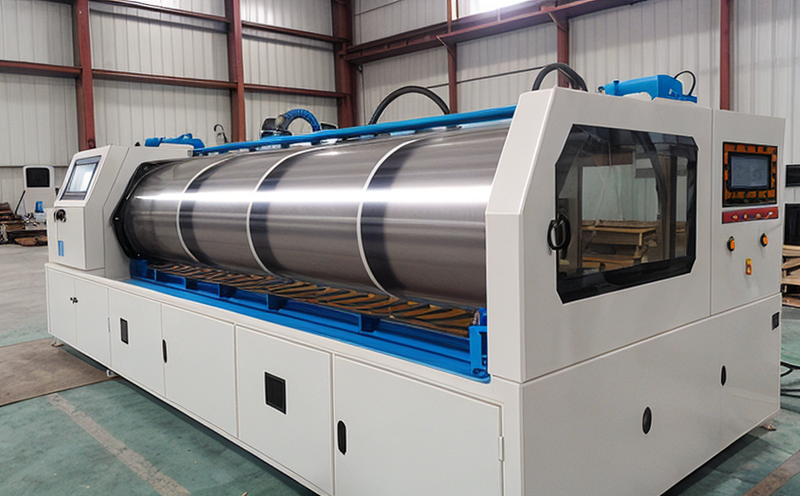OEKO TEX Compliance testing for coated and laminated textiles
The OEKO TEX standard is a globally recognized system that ensures textile products are free from harmful substances. For coated, laminated, and finished textiles, compliance with this standard is critical to ensure consumer safety and meet market demands. This service focuses on providing comprehensive testing solutions for materials used in these sectors, ensuring they meet the stringent requirements of OEKO TEX 100 Standard.
Coated textiles include those treated with chemical coatings that provide specific functionalities such as water resistance or abrasion resistance. These treatments can involve various substances including polymers, waxes, and other chemicals. Laminated textiles are made by bonding different layers of fabric together using adhesives or heat, creating a composite material for enhanced durability or performance.
The OEKO TEX 100 Standard includes stringent chemical restrictions that must be adhered to in order to achieve certification. This service covers a range of tests including but not limited to formaldehyde release testing, heavy metal content analysis, and restricted substance list (RSL) compliance checks. These tests are critical for ensuring that the final product does not contain harmful substances.
Our laboratory uses state-of-the-art equipment and follows internationally recognized standards such as ISO 17295:2013 for formaldehyde release testing on textiles, which ensures accurate and reliable results. The process involves preparing the specimen according to specific guidelines provided by OEKO TEX, then subjecting it to rigorous tests using advanced instrumentation. Once tested, our team provides detailed reports outlining all findings.
The importance of OEKO TEX compliance cannot be overstated in today’s market. Consumers are increasingly aware of the potential health risks associated with certain chemicals used in textile production. As a result, many retailers and manufacturers require their suppliers to provide proof of OEKO TEX certification before proceeding with business relationships. Achieving this certification not only opens up new markets but also enhances brand reputation by demonstrating commitment to quality and safety.
Our service goes beyond just meeting regulatory requirements; it helps our clients stay ahead of changing consumer expectations and emerging trends in the textile industry. By offering OEKO TEX compliance testing, we assist companies in maintaining high standards throughout their supply chain, from raw materials through finished goods.
In summary, OEKO TEX compliance testing for coated and laminated textiles is crucial for ensuring product safety while meeting market demands. Our laboratory provides thorough, accurate, and reliable tests that help clients achieve this important certification. With our expertise in this field, we are committed to helping companies maintain their competitive edge and build trust with consumers.
Applied Standards
The OEKO TEX Standard 100 is the world’s leading testing standard for ensuring that textile products are free from harmful substances. This service adheres strictly to this standard, covering all aspects relevant to coated and laminated textiles.
- ISO 17295:2013 – Formaldehyde Release Testing
- EN ISO 14184-1:2006 – Biocidal Products in Textiles
- ASTM D3322-03(2017) – Test Method for Determination of pH of Aqueous Liquids
- EN 16979:2018 – Determination of Total Nitrogen in Textiles by Combustion and Reduction with Alkaline Hydrogen Peroxide
The list above highlights just a few of the international standards applied during our testing process. Each test is conducted meticulously to ensure complete adherence to these guidelines, providing clients with peace of mind knowing their products meet or exceed global standards.
Industry Applications
- Clothing Manufacturing: Ensuring that fabrics used in clothing items are safe for consumers to wear, especially those intended for infants and children.
- Automotive Industry: Developing seat covers, upholstery, and other interior components that comply with OEKO TEX standards.
- Furniture Manufacturing: Providing materials used in furniture construction that meet strict environmental protection criteria set by OEKO TEX.
- Sports Apparel: Testing performance-enhancing fabrics for water resistance, breathability, and other properties without compromising safety or health.
- Hospitality Industry: Ensuring linens and towels are safe to use in hotel rooms, guest quarters, and public areas.
Use Cases and Application Examples
In the automotive industry, OEKO TEX compliance testing is essential for ensuring that all materials used in seat covers are safe not only from a chemical perspective but also environmentally friendly. This includes checking for any volatile organic compounds (VOCs) that could off-gas over time, affecting indoor air quality.
In the sports apparel sector, it’s important to test fabrics for moisture management and breathability while ensuring they do not contain harmful chemicals such as formaldehyde or perfluorinated compounds. This helps manufacturers create products that are both functional and safe for athletes to use regularly.
For furniture makers, OEKO TEX testing ensures that every piece of fabric used is free from hazardous substances, which is crucial given the long-term exposure consumers may have with these items in their homes.
In hospitality settings, OEKO TEX compliance helps maintain a safe environment for guests by ensuring all textiles used are not only hygienic but also free from potentially harmful chemicals. This enhances guest satisfaction and protects against any health risks.





